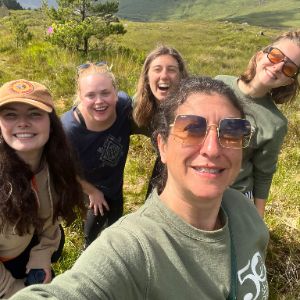In 2015 at COP21 in Paris, it was agreed and became a part of the remit for many governments, that for the next 30 years there HAS to be a reduction in global carbon emissions.
For this to come to fruition in the future, we cannot only introduce higher rates of carbon tax, invest in public transpo...
I have been working as an educator for environmental sustainability for a few years now, and never have I been more disillusioned than in recent times.
I like many others, had confidence and trust in the many “labels” seen on products we consume. ‘Eco-labels’ - Free from Tuna, Sustainable Palm Oil,...
This is difficult to determine, because there is more than one issue at stake.
In terms of Co2 emission at the production stage, Tetra Pak cartons are the winner, followed by plastic, then aluminium, and surprisingly then glass is the worst.
Glass is the highest producer of carbon emissions becaus...
Last week I saw the amazing Clover Hogan, a young climate activist from Australia give a TEDTalk
The link to her talk is on this week's written blog on our website, I encourage you to watch it - it's fantastic!
“Climate change is not your responsibility, because it is outside your control, but w...
Sustainability has so many definitions that it can often drive people to distraction…
What does it actually mean? How do I make my own business more sustainable? How do I know if I am successful at greening my business?
The answers are much simpler than people may think and I'll tell you why.
Her...
We are beyond thrilled to spring into February on a very positive note!
In collaboration with KWETB Training Services (Kildare/Wicklow Education & Training Board of Ireland) we are presenting an online Environmental Education programme to secondary schools.
This pilot project allows us to bring t...
The modern society we have collectively created has its pros and cons...
Many might feel that having supermarkets where you can buy EVERYTHING in one place, is a welcomed development in our society. It seems that convenience is prioritised above all else (even above reducing the food waste).
Has t...
First of all a very HAPPY NEW YEAR to you all!
I hope 2021 is kinder to all of us than 2020 has been...
As we all delve into New Year’s resolutions, I wanted to start my year talking about a country I admire and have followed the progress of for a few years now - Costa Rica.
This blog, is a littl...
Sustainability doesn’t have to be an unattainable goal, or something in the distance that we all know exists but we fail to pursue. There are so many small changes we can all implement in our lives and workplaces that will directly affect our use of resources and our production of a carbon footprint...
Allow me to steal 3 minutes of your time today to show you how simple it is to reduce your Hotel’s carbon footprint and even achieve carbon neutrality.
Sustainability is this big word that is thrown around so often and in so many scenarios that it becomes an unachievable task in our minds. So I wan...
Climate crisis, biodiversity collapse and extinguished eco systems are common words we hear every so often in recent years.
But what can I do about it?
Can I change it?
And if I can’t, should I care?
In a post COVID economy, business owners have enough to worry about without also joining the fig...
The second most polluting industry in Ireland, according to the Climate Action Plan released a few weeks ago, is transport. The plan is aggressive in it’s targets to face out diesel and petrol cars, and my mind always goes to those that can not afford and electric car.



